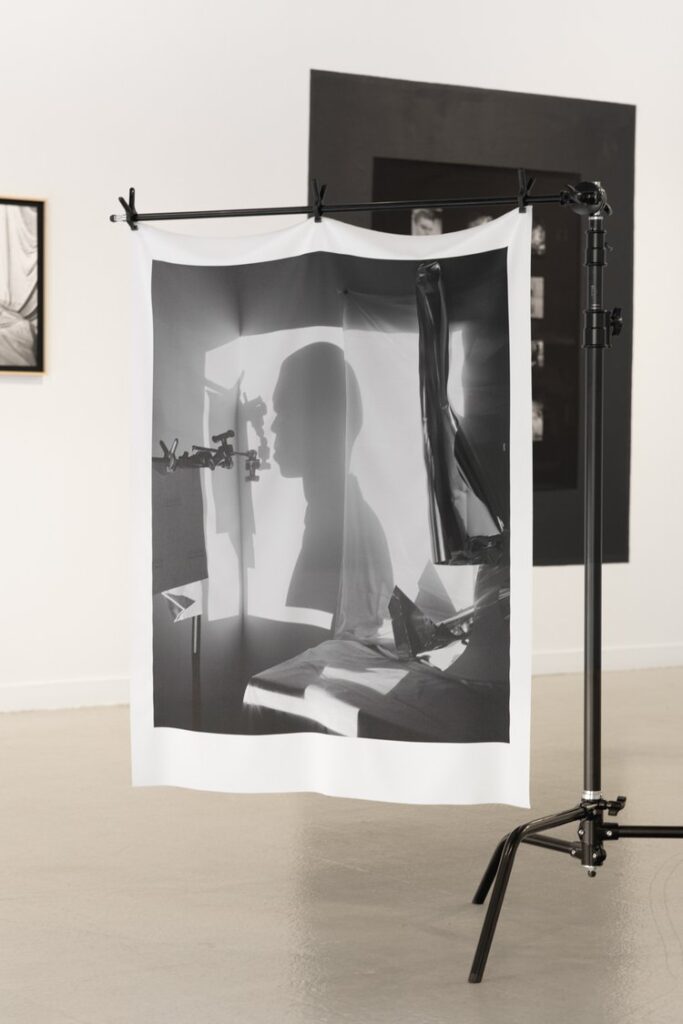In “Dismantling Monoliths” at SF Camerawork (through March 25), Jamil Hellu has thrillingly curated an exhibition that profoundly intersects with his communities and artistic life. As Hellu collaborates with LGBTQ+ BIPOC community members in his own photographic works, the exhibition creates a curatorial stage for artists and collaborators to self-represent.
While the exhibition’s title “Dismantling Monoliths” is evocative, the real power of the exhibition is not in destruction or a breaking-down, but in the grace of collaboration and a poetic refusal, protection, and consent. Many photographs feature individuals looking away from the camera or not making their faces visible; the exhibitions explores the subtle politics of being seen, recognized, and represented.

The gesture of not returning the gaze is most prominent in Xandra Ibarra’s “Turn Around Sidepiece” (2018). In the looped video, the unclothed artist sits atop an unusual slowly rotating boulder. As the boulder spins, she repeatedly turns her body so that her face is never directed at the camera. With the continuous motion of boulder and Ibarra awkwardly repositioning her body, viewers become acutely aware of the labor involved in not returning the gaze. Ibarra creates a tension between the exposed body and the concealed face, where the artist defines her vulnerability and sexuality.
In “Untitled (self)” (2018), Aaron Turner presents a black-and-white photograph of a hand holding a broken mirror. Rather than seeing the artist’s face in the mirror, viewers see fragments of a vintage photograph of a young Black man in formal attire. As Turner’s work explores representations of seminal Black men in history, the artist creates a lineage of images that might mirror himself. Intriguingly, the hand mirror also suggests the intimacy of personal grooming, where privately one might attend to hair, makeup, and shaving before entering public space. While viewers never see Turner’s face, the artist explores the terrain between private and public visibility that extends through history.

Expanding upon this theme of representing self amongst or through communities, Marcel Pardo Ariza presents four portraits installed in front of a wall-sized print of ropes against an orange background. Hung at various levels, the photographs mirror the tension and precariousness of the ropes. Unclothed and with whips, the portraits speak to BDSM, where communities explore intimacy, sexuality, and collaboration. In photographing the backs of individuals embracing, Ariza makes their community seen and highlights the consensual balance between tenderness and restraint.
As historical representations of otherness have been at times calculated and coercive forms of knowing or recording, “Dismantling Monoliths” showcases artists and individuals in the process of self-representation. As many of the works deny viewers access to the individual’s faces, the works probe a subtle distinction where not returning the gaze is not necessarily a process of hiding or defiance. Poetically, these artists suggest that looking elsewhere, not at the viewer can be a collaborative gesture of consent and care.
DISMANTLING MONOLITHS runs through March 25 at SF Camerawork, Fort Mason, SF. More info here.




